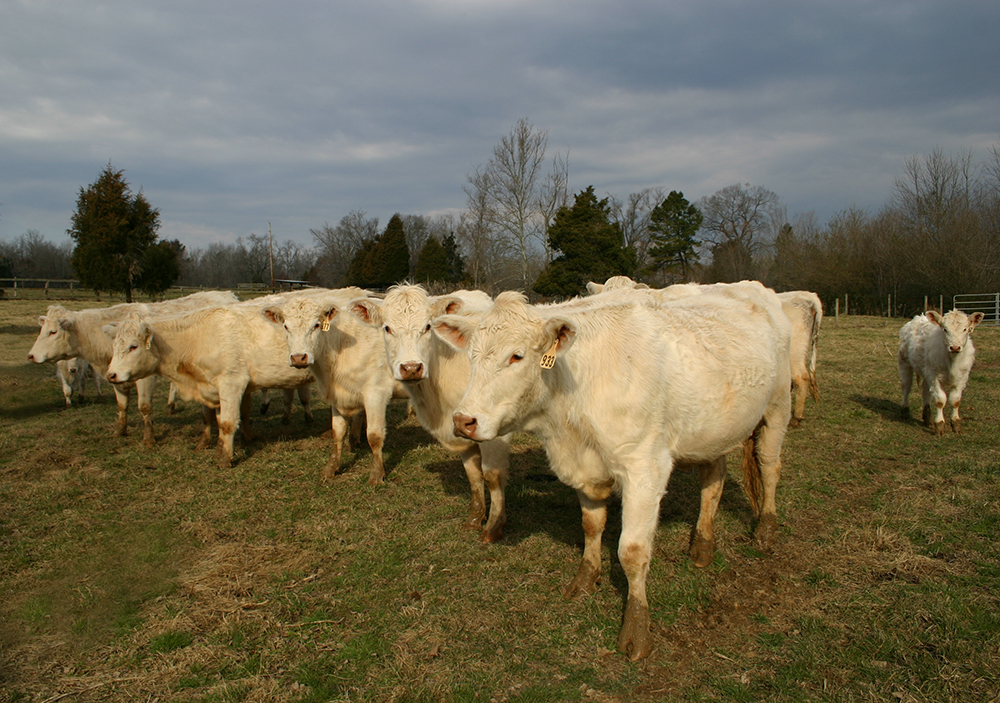Chatham Farmers Invited to Apply for Conservation Cost Share Grants
go.ncsu.edu/readext?483497
en Español / em Português
El inglés es el idioma de control de esta página. En la medida en que haya algún conflicto entre la traducción al inglés y la traducción, el inglés prevalece.
Al hacer clic en el enlace de traducción se activa un servicio de traducción gratuito para convertir la página al español. Al igual que con cualquier traducción por Internet, la conversión no es sensible al contexto y puede que no traduzca el texto en su significado original. NC State Extension no garantiza la exactitud del texto traducido. Por favor, tenga en cuenta que algunas aplicaciones y/o servicios pueden no funcionar como se espera cuando se traducen.
Português
Inglês é o idioma de controle desta página. Na medida que haja algum conflito entre o texto original em Inglês e a tradução, o Inglês prevalece.
Ao clicar no link de tradução, um serviço gratuito de tradução será ativado para converter a página para o Português. Como em qualquer tradução pela internet, a conversão não é sensivel ao contexto e pode não ocorrer a tradução para o significado orginal. O serviço de Extensão da Carolina do Norte (NC State Extension) não garante a exatidão do texto traduzido. Por favor, observe que algumas funções ou serviços podem não funcionar como esperado após a tradução.
English
English is the controlling language of this page. To the extent there is any conflict between the English text and the translation, English controls.
Clicking on the translation link activates a free translation service to convert the page to Spanish. As with any Internet translation, the conversion is not context-sensitive and may not translate the text to its original meaning. NC State Extension does not guarantee the accuracy of the translated text. Please note that some applications and/or services may not function as expected when translated.
Collapse ▲FOR IMMEDIATE RELEASE
Contact: Chatham Soil & Water Conservation District, 919-542-8228
PITTSBORO, NC— The Chatham Soil and Water Conservation District is currently taking applications from agricultural operations for both the Agricultural Cost Share Program and the Agriculture Water Resources Assistance Program.
The Agricultural Cost Share Program helps agricultural operations install best management practices (BMPs) that address sediment or nutrient losses, animal waste management, agrichemical pollution prevention or stream protection.
Examples of BMPs include livestock exclusion systems to fence livestock from surface waters, manure drystacks and composters for nutrient management, as well as long-term no till, cover crops, waterways and terraces for sediment and erosion management on cropland.
The Soil and Water Conservation District is also accepting applications for the Agricultural Water Resources Assistance Program, which assists farm operations with insufficient water sources for irrigation for cropland, nurseries or livestock. Eligible projects include new pond construction, pond dam repair or retrofit, pond sediment removal, streamside pick-up, conservation irrigation conversion, micro-irrigation, and water supply wells.
The district has limited funding available. All applications will be ranked within the county and possibly within the region. Funding will be awarded to the highest priority needs.
Cost share awards may amount to 75 percent of the total installation costs, with the applicant required to cover the difference. Funds are provided by NC Division of Soil and Water Conservation through the NC Department of Agricultural and Consumer Services.
Eligible applicants for these programs must operate a bona fide farm, as described by NC GS153A-340(b)(2), and have been in production for three or more years. Please call the office at 919-542-8240 to speak with a specialist regarding eligibility and to set up a farm visit to discuss best management practices and conservation planning.
Questions? Contact the Chatham County Soil and Water Conservation District at 919-542-8228.
If you are not in Chatham County, contact your local Soil & Water Conservation office.



